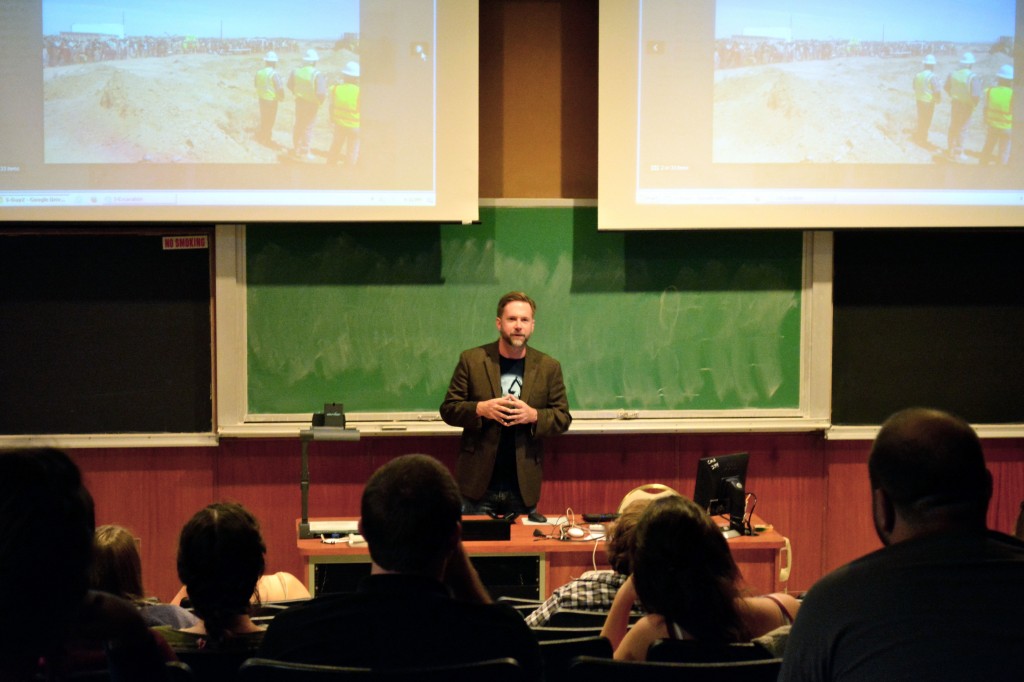
In 1982, Atari, then the biggest video game company in the world, secured the exclusive rights to design and sell a game based on the Steven Spielberg film “E.T. the Extra-Terrestrial.” But the commercial failure of the game — widely considered to be one of the worst ever made — nearly caused the company to go bankrupt and led to unsold copies being buried in a landfill.
On Friday, Andrew Reinhard, the director of Publications at the American School of Classical Studies at Athens, gave a talk entitled “Punk Archaeology and the Atari Burial Ground” about his role in the excavation of the landfill of unsold games, as well as about his own archeological experiences.
In April, he was invited to help excavate the site at Alamogordo, New Mexico, where at least 14 full trucks of game cartridges, totaling hundreds of thousands of games, were dumped. Reinhard worked on a volunteer basis with Fuel Industries, a Canadian entertainment company, that was filming a documentary about the history of the game.
“We were there for a period of three days,” Reinhard said, “which is nowhere nearly long enough to do a proper excavation, so we turned it into a salvage.”
At the talk hosted by the Binghamton University anthropology department, Reinhard said that while he and his peers found many E.T. games, they also discovered dozens of game titles that he remembered from his childhood.
“It was incredibly interesting and special to me to be able to go down and see these again for the first time in over 30 years,” Reinhard said.
According to Reinhard, this dig was part of a new field of study called “Punk Archaeology,” which is an alternative form of archaeological study that investigates more recent history.
“We embrace the do-it-yourself aesthetic of punk and apply it to archaeological science so that we can do things on a volunteer basis, do things cheaply or on the free, work with a volunteer core and engage the public,” Reinhard said.
Originally, Reinhard said that he had initially studied fourth- and fifth-century BCE Greece, but had become more interested in contemporary pursuits.
“I started off as kind of a hardcore academic classical archaeologist and over time I started to see there were other kinds of archaeology for other kinds of material,” Reinhard said. “So it was good to give them some love.”
He said that much of his research involved “punk” pursuits, like squatter homes and abandoned music venues, and this project in New Mexico was new to him.
“This really turned it on its head,” said Dan Roman, a senior majoring in English. “We were actually digging up real games out there in the desert so it was the first excavation of its kind.”
He said that Reinhard gave him a new perspective of the field.
“Archaeology is a still-developing field,” Roman said. “It can be very modern, even though we associate it with mostly ancient things.”
Sarah Kindschuh, a graduate student in the anthropology department and a doctoral candidate, said it was nice to see contemporary archaeology.
“This one seemed to be a little more modern than what they usually do,” Kindschuh said. “You don’t see a lot of presentations from people who are doing pretty current topics like video gaming.”


